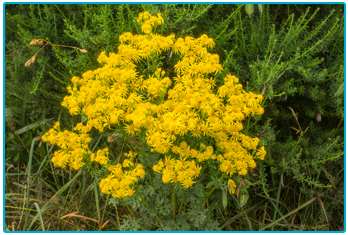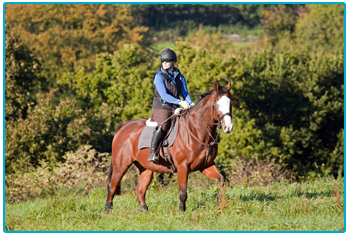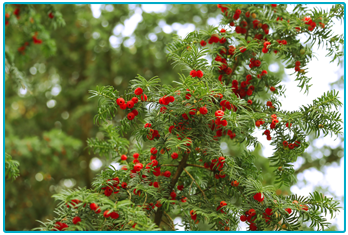Now that the warmer weather is finally here, you’ll want nothing more than to get out hacking with your horse. The firmer ground and drier conditions mean that it’s the perfect opportunity to explore new places, meaning a happy hacker and an even happier horse! With new territories comes added responsibility, you will need to be aware that different roads could throw up new sights and sounds that could unsettle your horse. There are also other hazards that you might not be so conscious of. Woodland trails and roadside verges offer up an abundance of springtime foliage for your horse to nibble on, but do you know which plants could be potentially poisonous?
Ragwort

Ragwort contains pyrrolizidine alkaloids and toxicity accumulates over time, causing liver failure and, in some cases, death. Ragwort flowers every two years and the seedlings, present from autumn until June, can go unnoticed until they reach the rosette stage. Appropriate herbicides can be used to treat rosette stage ragwort during the spring.
Laburnum
Sometimes known as the golden chain tree, the laburnum is a small tree, with yellow pea-flowers that look spectacular when in full bloom. Laburnum flowers in May and all parts are toxic to horses and ponies. Ingestion by your animal can cause gastrointestinal and neurological signs.
Hemlock

Hemlock is a hardwearing plant that often appears wild in patches of woodland. It is highly toxic to all animals and can cause respiratory arrest. You’ll mostly find it appearing between June and July, and it can be identified by a nasty smell when crushed underfoot.
Foxgloves
Foxglove, known by the Latin genus name digitalis, is an attractive plant, that flowers vividly in purple and pink, and flourishes in wild countryside and woodland. All parts of the foxglove are toxic and it can be fatal. It flowers from June to September and symptoms of poisoning can include difficulty breathing and convulsion.
Yew

Yew, or taxus baccata, is a popular conifer tree commonly found in many gardens across Britain. What many people might not know is that all parts of the yew are very toxic if eaten. It contains alkaloids, which are extremely fast acting, and can cause muscle tremors, ataxia, respiratory signs, seizures and cardiac arrest.
It isn’t just the plants above that could be poisonous to your horse, there are many others such as bracken, marsh marigold, privet and laurel that could also cause your animal problems. Be aware when hacking out with your horse, and if they start behaving differently or exhibiting any of the symptoms above then you should contact your vet immediately.
All content provided on this blog is for informational purposes only. We make no representations as to the accuracy or completeness of any information on this site or found by following any link on this site. We will not be liable for any errors or omissions in this information nor for the availability of this information. We will not be liable for any loss, injury or damage arising from the display or use of this information. This policy is subject to change at any time.


